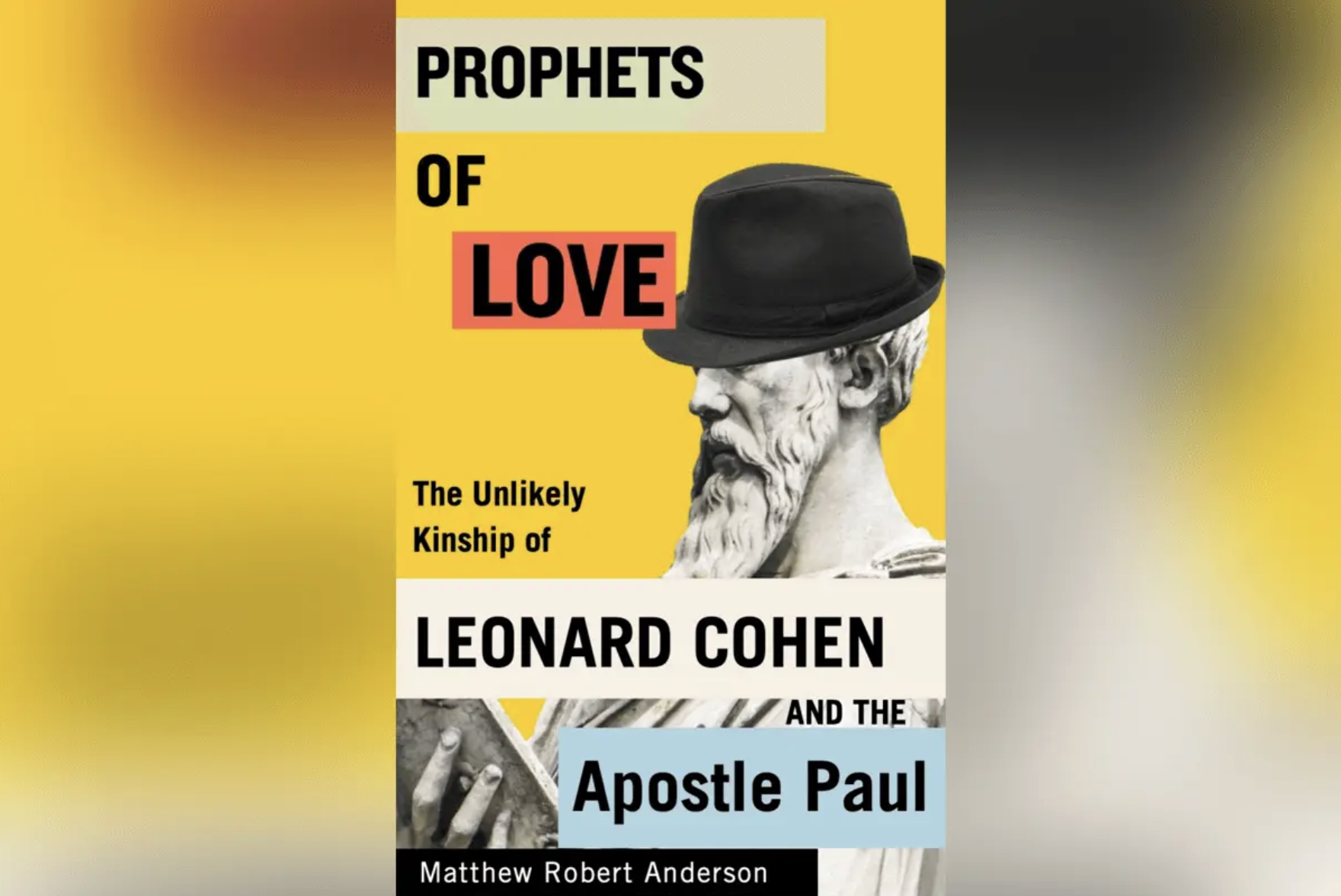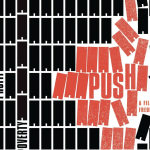Dr. Matthew Anderson is drawn to uncovering unlikely connections.
For example, four years ago the Father Edo Gatto Chair of Christian Studies at St. Francis Xavier University in Antigonish, N.S., released a book titled Pairings: The Bible and Booze, which featured his suggestions on ideal drinks to complement the reading of key scriptural passages.
A longtime scholar of St. Paul, Anderson was very keen on making the public aware about the key research that has been conducted about the prolific New Testament author over the past 40 years.
Which of course has led Anderson to identify another unlikely mashup — the apostle St. Paul and legendary Canadian singer, songwriter and author Leonard Cohen.
“I love Leonard Cohen and I love digging into his lyrics,” said Anderson. “And after a while I thought, ‘you know, there are more similarities than most people would realize between these two figures.’ “
The academic articulated these uniting ties in a book called Prophets of Love: The Unlikely Kinship of Leonard Cohen and the Apostle Paul. This work, released late in 2023, earned runner-up honours for both the 2025 Social Sciences and Humanities Research Council of Canada (SSHRC) National Book Award and the 2025 Koffler Vine Canadian Jewish Book Award.
Anderson is now sharing and discussing his observations via a six-part continuing education series in partnership with the Atlantic School of Theology. The debut lecture on Sept. 23 was both an online and in-person function. The remaining classes, Tuesdays from Oct. 7 through Nov. 4, will be conducted through Zoom.
There are several takeaway ideas from these lectures that Anderson hopes will resonate and linger with attendees.
“I want people to take a fresh look at Paul, and to see how in many ways he was a poet and someone who looked at the human condition like Leonard did,” said Anderson.
Anderson cited 2 Corinthians 4:7 “but we have this treasure in jars of clay to show that this all-surpassing power is from God and not from us,” and how it parallels with a lyric in Cohen’s 1992 song “Anthem.” Cohen, who passed away in November 2016, wrote “forget your perfect offering. There is a crack, a crack in everything. That’s how the light gets in.”
Another major commonality, of course, between St. Paul and Cohen is their Jewish heritage.
One of the other major aims of this lecture series for Anderson is for participants “to come away with a renewed appreciation for Paul, and especially as a Jew. Once you start thinking of him as a Jew within Judaism, you start to see things in different ways within the New Testament.”
While these two men are the centrepiece subjects of this lecture series, Anderson will be profiling some of the women who empowered each from behind the scenes.
“Leonard’s career was pretty much saved by people like (backup singer and vocal arranger) Jennifer Warnes in the 1980s,” suggested Anderson. “His career was in the dumps. She was not the only one — Judy Collins and co-singers he worked with.
“And Paul, people don’t realize that Phoebe for instance, in the book of Romans, is referred to in some cases as a deacon and helper. A translation of that in Greek could actually be patron and it’s actually a more accurate translation. And so, you’ve got somebody who essentially bankrolled Paul, probably in much the same way that there were a group of women who bankrolled Jesus, according to Luke.”
The masculinity of Paul will also be discussed. Anderson makes a case “that Paul is actually more feminist than Leonard Cohen, believe it or not.”
Naturally, Cohen’s “Hallelujah,” one of the most covered songs in the history of music since its release in 1984, will be covered during the lecture series. Anderson plans to use “Hallelujah” as the case study in a discussion about the legacies “that in some ways respected and even enlarged who they were,” and the aspects of legacy “that misunderstands what the person originally said.”
In the context of Cohen, Anderson said the “legacy can go beyond an author” when you have, for example, an American evangelical Christian singing the folk-rock hymn with different lyrics before returning to a faithful rendition of the chorus.
“In some ways that’s a misunderstanding of what Cohen put in there,” said Anderson. “It’s got many meanings, but not necessarily that.”
Misunderstanding Paul’s legacy can naturally occur, said Anderson, because he “never intended to have a legacy” because “he expected society to be transformed and Jesus to return within his lifetime. He would be surprised to find us here.”




